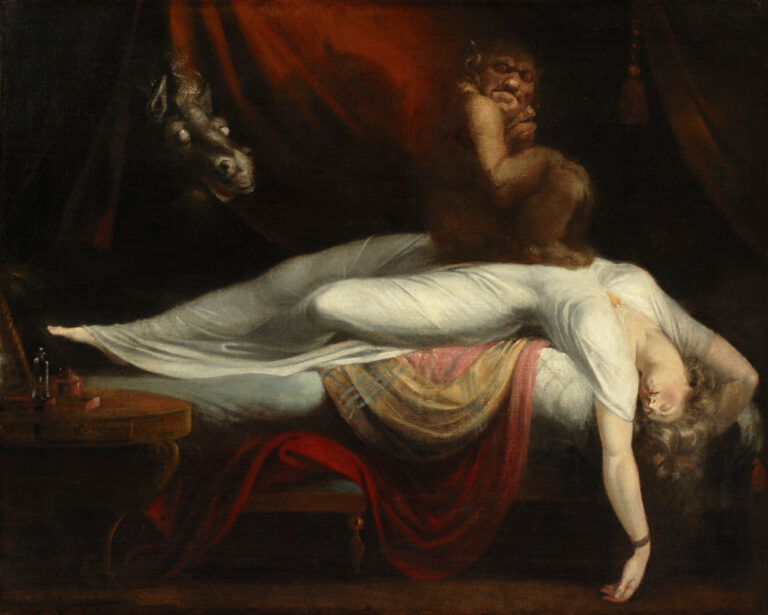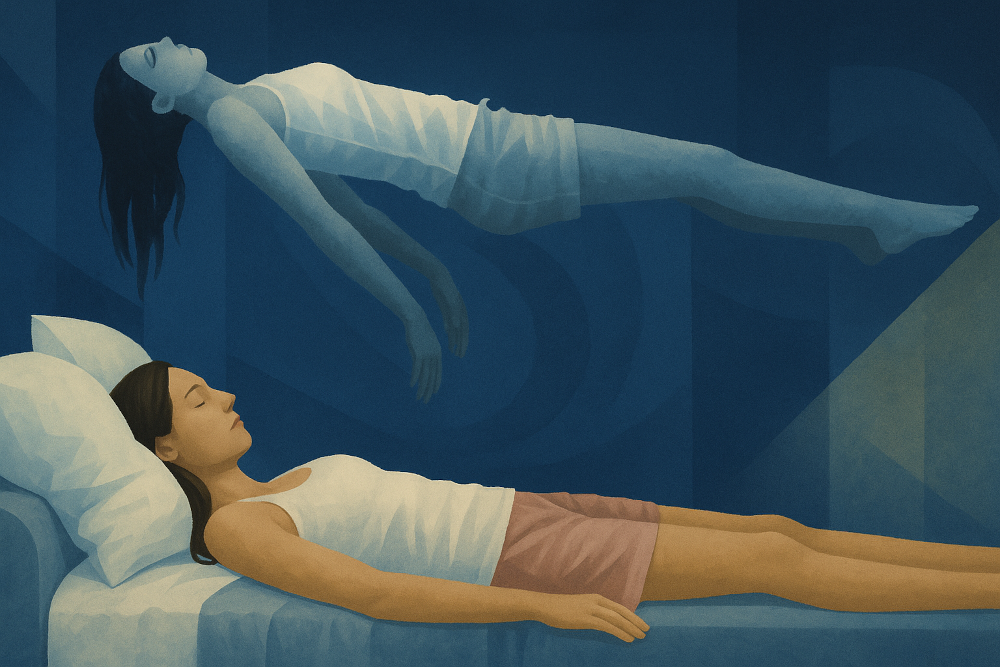Sleep paralysis is a psychophysiological event that can be experienced when falling asleep or waking up. Sleep medicine classifies it as a parasomnia. SP can be a symptom of a narcolepsy disorder, but it can also be monosymptomatic as isolated SP (ISP). Affected persons are awake but are subject to paralysis that affects the entire body with the exception of the eye, ear and respiratory muscles. In addition, unusual experiences often occur. Examples include strong feelings of fear, the perception of the presence of malevolent entities in the room, or other hallucination experiences in various sensory modalities (humming, buzzing, voices, footsteps, floating sensation, lights, through to the detailed visual perception of people, ghostly beings or aliens). The paralysis usually lasts only a few seconds to minutes, but there are also reports of longer-lasting experiences. Some people even use SP as a method to induce positive experiences such as lucid dreams and out-of-body experiences (OBE).
Although sleep paralysis is a cross-cultural and quite common phenomenon – the lifetime prevalence is around 8% – there is relatively little information available to date on its prevalence, on the handling of the associated extraordinary experiences (AEs), and also on its clinical relevance in Germany. While SP are characterized by a specific phenomenology, they are closely linked to other Exe, namely out-of-body experiences, lucid dreams and experiences of contact with extraterrestrials or other extraordinary beings. The often bizarre and disturbing quality of the SP experience, the lack of known patterns of interpretation in many cultures and the accompanying somatic and psychological circumstances place SP experiences in the realm of exceptional experiences and altered states of consciousness, which are often interpreted as an indication of the paranormal. It is not surprising that many Western scientists assume that SP experiences are one of the sources and causes of people’s belief in spiritual entities such as spirits, demons etc. due to these special characteristics.

